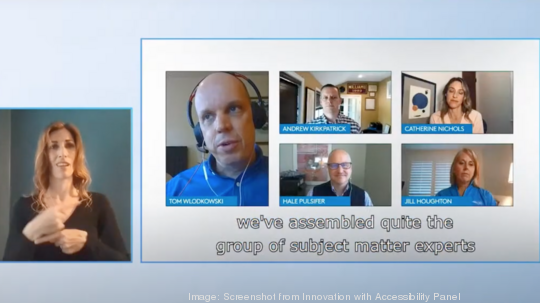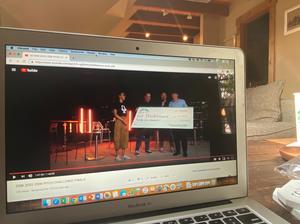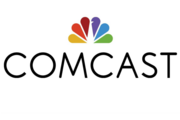
Denver Startup Week is wrapping a memorable week after going fully virtual for the first time.
Following a year marked by economic challenges, racial reckoning, changing work environments, and fears related to the coronavirus, Denver Startup Week proved that entrepreneurship prevails even during trying national times.
Founded in 2011, Denver Startup Week is a celebration of everything entrepreneurial in Denver, and is the largest, free startup event of its kind. Last year, the event attracted more than 20,000 attendees who participated in more than 350 programs and sessions highlighting companies, innovation, ideas, and people throughout the weeklong event.
While the event has always sought to unite Denver’s entrepreneurial community, this year’s event was particularly focused on startups’ role in furthering initiatives around diversity, equality, and inclusion, says Denver Startup Week’s Organizing Chair, Tami Door.
“Denver Startup Week was founded on inclusivity and access and is a great entree into getting connected with our startup ecosystem,” explains Door by phone, adding the group strives to include speakers from diverse backgrounds such as women, people of color, and those living with disabilities. “We want to make sure people have access to mentors, the network, and the resources to move their company forward. It’s a very powerful way to democratize entrepreneurship.”
During a special kickoff panel, Mayor Michael Hancock says it’s always been his goal to build a strong entrepreneurial ecosystem to attract talent and investors to the city. Speaking to Robert Smith, CEO and founder of Vista Equity Systems and the panel’s keynote speaker, Hancock asked Smith how Denver can continue to build a more inclusive and innovative culture.
“I think it is critical beyond what we’re experiencing in the pandemic, [we are] experiencing a social unrest that is driven by a disparity of opportunity,” said Smith. “The key in my mind, there are capital deserts, there are educational deserts, there are opportunity deserts, there are healthcare desserts, that have to be addressed. If you don’t address them then you’re not going to be able to attract a talent pool that will create a robust economy.”
Expanding broadband access and giving the next generation the opportunity to learn STEM skills should also be top of mind, Smith added.
This year’s startup week also highlighted the event’s dedication to providing equitable access to attendees living with disabilities. The event partnered with ACS Captions and LinguaBee to provide live closed captioning and sign language interpretation services for all of the panels and sessions throughout the week.
Media and technology company Comcast served as the 2020 Accessibility Sponsor for the event, helping to make these services possible.
In a panel focused on promoting accessibility in the entrepreneurial community, Comcast VP of Accessibility, Tom Wlodkowski, who is visually-impaired, discussed the importance of supporting accessibility and inclusion initiatives, and how businesses can adapt to become more innovative — especially in an era of COVID-19 and working from home.
“Disabilities are really a mismatch between a person and their environment,” said Wlodkowski, adding that activities such as Zoom meetings can be challenging for people living with disabilities. “Different techniques that can make an environment more inclusive can really benefit everyone during this time.”
Panelists said COVID-19 has accelerated the need to adapt to technology and changed the way companies view diversity across the board. This has included businesses recognizing the need to conduct “accessibility checks” to ensure that all employees and customers are able to tune in and participate, and “leading with empathy.”
“I think what we’re seeing is that businesses are really leaning into accessibility and leading with humanity,” said Jill Houtgton, president and CEO of Disability:IN. “This is an opportunity for us to all stop and focus on the human-side of the workforce.”
Companies such as Comcast are already leading the charge in inclusive design. The company showcased its host of accessibility tools for television, such as enhanced closed captioning, Bluetooth technology, and voice-activated search. It’s just part of Comcast’s mission to improve experiences for all customers, said Product Experience Storyteller, Eve Hyppolite.
It’s the sort of entrepreneurial spirit Door hopes Denver can replicate throughout the city’s startup community.
“Energy remains high, connections are still being made, and I think that sends a strong message,” Door says. “Regardless of the times we face, people still have big ideas. They are still thinking boldly. People still believe in the power of entrepreneurship.”

